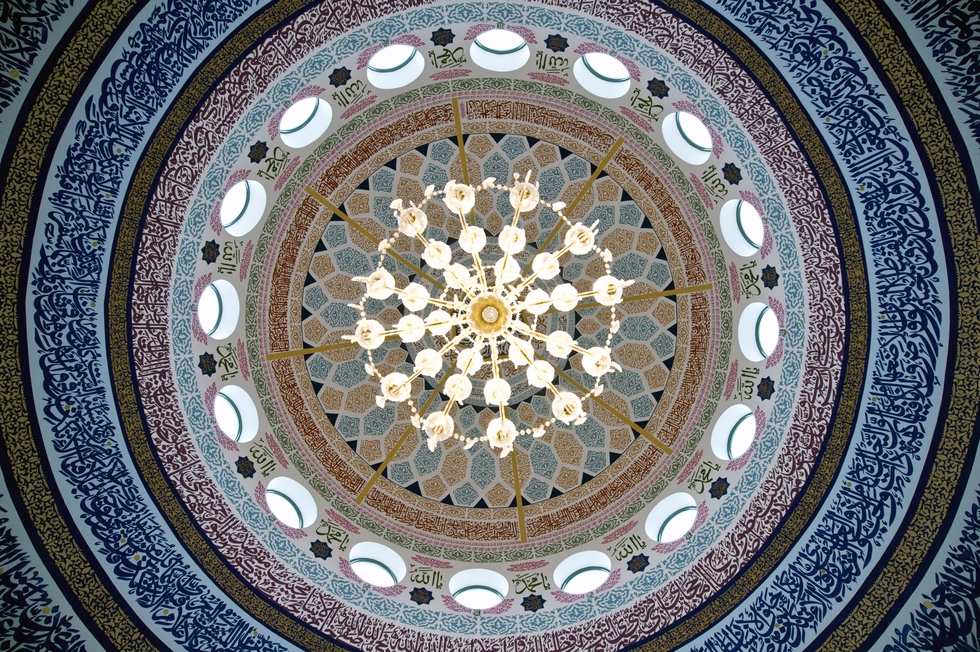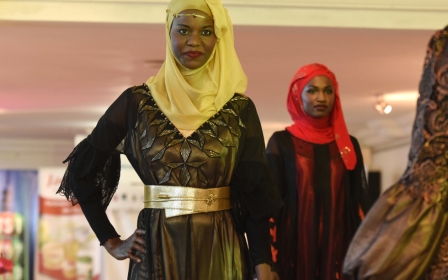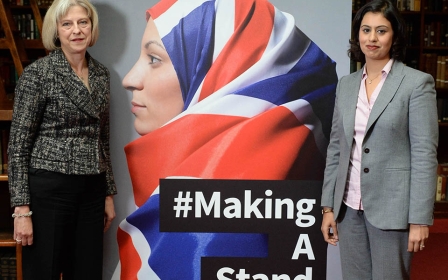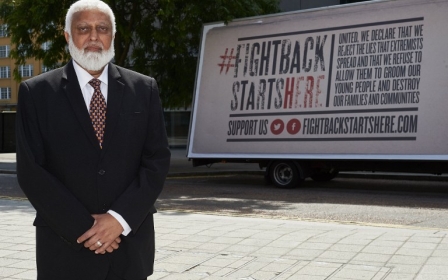Britain's bid to socially engineer 'good Muslims'

In a report released earlier this week the British government has been revealed to have covertly engineered numerous political campaigns under the pretext that they were led by grassroots organisations. Social media campaigns were created to support government narratives under the guise of grassroots activism.
In the report titled "We Are Completely Independent", advocacy group Cage reveals the covert government funding of such campaigns as a tool to “‘counter narratives", "to combat the appeal of 'extremist narratives' among Britain’s young people”, namely, British Muslims. The campaigns in the report all relate to the war in Syria and come on the back of young British Muslims travelling to the country to deliver aid, to join armed groups or to live in Islamic State group-held territory. You might say there is and has been a pressing need for the government to take action in combating the issues it faces but to do so through such covert means raises alarming questions.
Propaganda tools
The report details numerous campaigns the Home Office's Research, Information and Communications Unit (RICU) has been secretly funding through its “go-to creative media agency” Breakthrough Media. Breakthrough Media has worked with various community groups and organisations, acting as an independent body. Yet the revelations in this report indicate that Breakthrough is anything but independent. The organisation has received millions of pounds of public money, from RICU - which receives some of its funding from the budget for Prevent - as it acts as an agent for the government, to shape the “debate around the legitimacy of Muslim life in the UK”.
“The veil of secrecy is there to allow these organisations to present themselves as independent and based within the grassroots of their communities," says Cage's report.
The secretive transaction which the government says it's “proud of” should ring alarm bells on all fronts, with the level of its covert nature ferociously explicit. The Guardian reports that Breakthrough Media has gone to “considerable lengths to conceal RICU’s involvement in its work”, alleging “new recruits are expected to sign non-disclosure agreements,” according to an employee.
Campaigns have been pushed out and created to support the government agenda and narrative, with "grassroots" organisations allegedly running the campaigns. This is hardly a relationship of equal partners, with “final signoff” coming from the government.
In its bid to push its narrative the government has used public voices and "trusted" institutions to support its aims, with Breakthrough Media as a single avenue and tool that has now been exposed. Until the government provides a more discerning response than a statement saying it's “important to build relationships out of the media glare”, we cannot be certain how far the operations extend and how deeply embedded its tentacles are within community groups and organisations.
On the list
My brush with Breakthrough Media came in February, though pressure on me to be involved in the government-led narrative came earlier.
The hashtag #AndMuslim was first used in March by a few mainly Muslim women involved in a grassroots campaign led by the northern-based Muslim Women’s Network, detailing how they are so many other things alongside being a "Muslim". But a month before its use on social media, it was Breakthrough Media who contacted me regarding the campaign, calling it a “project for the Muslim Women’s Network” and asking if I might be able to join as a “contributor”. They told me I was found via the British Bangladeshi Power & Inspiration 100 List.
“Our campaign aim is to profile Muslim women role models [who] will show the diversity of Muslim women across the UK and aim to challenge stereotypes,” Breakthrough Media said.
What’s wrong with that? A request without hidden agenda, you would assume as part of a "grassroots" women’s organisation - but this campaign is little different to the ones documented in Cage’s report.
Prior to this request from Breakthrough, I had faced varying degrees of pressure to launch a campaign utilising social media within my own work, using a hashtag and catchy title with an aim to “tackle the current narrative of extremist Muslims” with “positive reinforcement” with the purpose of halting the flow of young British Muslims leaving for Syria.
There must be a call for transparency following these revelations, in order for British Muslims and the wider public to regain trust. We need a transparent supply chain for which all producers are accountable. Integrity, impartiality and independence are key to trusting those relaying information and principles we should hold dear.
Endorsements which are designed to engineer and influence the hearts and minds of communities should not be taken lightly. It is intolerable that this is being done through such shadowy means and wholly inappropriate that young Muslims here in Britain should be exposed to such propaganda. For the government to engage in such activity it is a blatant abuse of authority and if any institutions or persons have been approached by media companies such as Breakthrough or otherwise they have a duty to come forward and make it known.
We should not sleepwalk into a situation where we are no longer conscious of what we are consuming, and we should not have to assume that we have to tread with caution regarding everything that appears before us.
By creating these campaigns and projects to show the palatability and acceptance of its preferred "good Muslim" choice, the government has bolstered a narrative that British Muslims fit into one of two categories, being either a "good" or a "bad" Muslim. Not surprisingly, some have likened this murky propaganda to a Cold War-style project of social engineering.
- Yasmin Khatun Dewan is a London-based freelance journalist working in print, online and broadcast media. She has produced critically acclaimed feature reports and investigative documentaries including AIB international investigation of the year 2014 nominee 'Slave Industry: A Year on from Rana Plaza', whilst contributing online articles on varied subject matters included counter-terrorism, CAR, the Middle East and fashion. She was named in the top 100 most influential British Bangladeshis in the UK in 2014 and in 2015 she was shortlisted for British Muslim Media contribution of the year.
The views expressed in this article belong to the author and do not necessarily reflect the editorial policy of Middle East Eye.
Photo: The interior of the dome of Makkah Masjid Mosque is seen in Leeds, northern England, on 18 January 2016, during a visit by British Prime Minister David Cameron (AFP).
Middle East Eye propose une couverture et une analyse indépendantes et incomparables du Moyen-Orient, de l’Afrique du Nord et d’autres régions du monde. Pour en savoir plus sur la reprise de ce contenu et les frais qui s’appliquent, veuillez remplir ce formulaire [en anglais]. Pour en savoir plus sur MEE, cliquez ici [en anglais].





